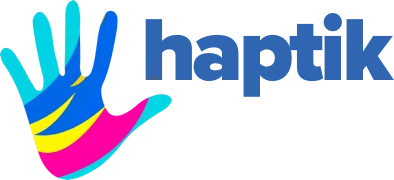At a time when instant answers, personalized service, and seamless journeys are becoming table stakes in customer experience (CX), enterprises can’t afford to rely on outdated chatbots or static support channels. AI agents are built for this moment. They’re enabling businesses to handle high-volume queries, guide users through onboarding, and nudge transactions.
ALSO READ: Are Conversational AI Agents Just Fancy Chatbots?
AI agents are essentially a new operating model for customer interactions. However, tech alone isn’t enough to drive adoption. It calls for CXOs to drive alignment across teams, processes, and outcomes.
In this article, you’ll find the ultimate CXO checklist for adopting AI agents - the foundational layer in the enterprise tech stack.
AI Agents for Enterprise - Why Now?
We’ve moved past the wait-and-watch phase of enterprise AI. The AI agent wave has matured, with early adopters moving from PoCs to full-fledged rollouts.
While implementation maturity is critical, what is clear is that AI agents are shifting how enterprises engage, support, and convert customers.
Should You Build or Buy AI Agents? Here's Your Answer
They orchestrate complex workflows, blend automation with empathy, and deliver consistent experiences across channels like WhatsApp, voice, and web.
That said, a clear roadmap is required to maximize AI agents’ game-changing potential. What does it mean for CXOs? Aligning technology with strategic priorities, ensuring teams are operationally ready, and establishing governance for long-term success.
The Ultimate CXO Checklist for AI Agents Adoption
Becoming AI agent-ready involves orchestrating many moving parts across strategy, systems, and teams.
1. Business Alignment
Before exploring use cases or vendors, be clear on the success metrics such as:
- Accelerating lead to conversion
- Increasing self-serve adoption
- Improving NPS
AI agents can impact multiple KPIs across support, marketing, and sales. However, misalignment here often leads to underwhelming outcomes.
2. Use Case Clarity
Identify high-impact use cases ripe for automation. Common ones include order tracking, product discovery, appointment booking, claim initiation, or lead qualification.
A well-defined use case allows you to design more meaningful conversations, set clear success metrics, and build a scalable foundation.
3. Tech Readiness
Even the most advanced AI agent is only as good as the systems it connects to.
- Can it access real-time data from your CRM, order management system, knowledge base, or product catalog?
- Are your APIs stable, well-documented, and secure?
Ensure your internal tech teams are looped in early, with a clear understanding of integration requirements, latency expectations, and fallback mechanisms.
4. Human-in-the-Loop
Human support remains crucial in the agentic world. When the situation calls for empathy, exception handling, or regulatory nuance, a seamless human handover is critical.
RELATED: What Is Human in the Loop AI?
That means:
- Building escalation protocols
- Using routing logic based on sentiment, query complexity, or user profile
- Empowering human agents with full context
5. Security & Compliance
Any deployment must adhere to enterprise-grade security and compliance frameworks like GDPR, CCPA, HIPAA, or ISO.
You Might Want to Read: A Guide to Responsible AI Practices for Deploying AI Agents
It’s vital to ensure that the AI partner provides end-to-end encryption, access controls, audit trails, and data residency options. Compliance needs to be built into the design from Day 0.
6. Governance and Prompt Strategy
Unlike static bots, AI agents rely on prompts, which are natural language instructions that guide responses. But prompts can drift or produce unexpected outputs if not managed carefully.
Thus, enterprises adopting AI agents should:
- Establish a governance model for writing, testing, and optimizing prompts
- Appoint internal stakeholders to own the conversation strategy
- Audit interactions to fine-tune tone, accuracy, and brand alignment
7. Measurement & ROI: Build a Feedback-Driven Loop
Launching the agent is just the beginning. Analytics need to be set up to monitor engagement, containment rate, escalation triggers, session quality, drop-off points, and user sentiment.
It’s paramount to track resolution time and satisfaction scores, as well as repeat calls and conversion uplift.
How Haptik Helps Enterprises Adopt and Scale AI Agents
Haptik is a strategic partner helping enterprises transform customer experiences through intelligent automation.
Enterprise-Grade AI Agents
Haptik’s AI agents excel through human-like reasoning, contextual understanding, and journey orchestration. From lead qualification to conversational sales to bookings and appointments to customer support - our agents handle end-to-end journeys that drive business outcomes.
Deep Integrations & Rapid Deployments
Our agentic platform integrates seamlessly with enterprise systems, including CRMs, messaging apps like WhatsApp, ticketing tools, and more Additionally, our modular, low-code setup ensures faster deployments and easy scaling.
Outcome-Driven by Design
Everything we build is aligned to KPIs like first response time (FRT), increasing conversions, or deflecting queries from live agents. Our analytics engine ties agent performance directly to business metrics, so you’re always clear on ROI.
Built with Guardrails, Governance & Trust
With robust prompting, fallback mechanisms, multilingual capabilities, and enterprise-grade compliance (ISO, GDPR, CCPA, and HIPAA), Haptik ensures your AI agents are safe, scalable, and aligned with brand tone across all channels.
Human-In-The-Loop
We combine AI, proprietary ML models, and GenAI (via LLMs and RAG frameworks) to deliver hybrid agents that are powerful, adaptable, and always grounded in verified knowledge.
Final Thoughts
As customer expectations evolve at an unprecedented pace and AI capabilities mature rapidly, businesses must move beyond experimentation and adopt AI agents as a core pillar of their CX strategy.
Success, however, demands strategic clarity, cross-functional alignment, robust governance, and a relentless focus on outcomes.
With the ultimate CXO checklist - and the right partner - enterprises can unlock scalable, intelligent, and deeply personalized customer experiences.






